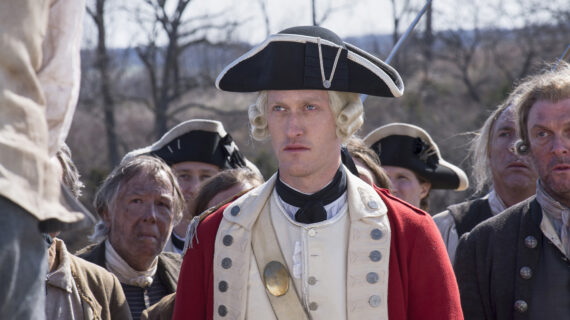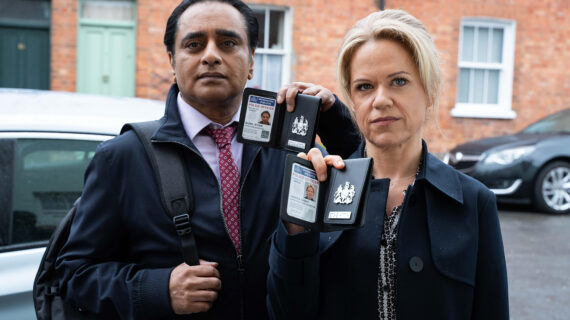Frederica Freyberg:
In Mukwonago they’re saying heck no, it won’t go. At least that’s the persuasion of the Mukwonago School District over its Indian logo and nickname. The Mukwonago Indians, as they're known, are tied to an image embedded in the community identity for more than 85 years, in addition to it being emblazoned on school signs, uniforms, letterheads and transcripts. But a law passed in 2010 allowed for a school district resident to challenge the use of a race-based nickname logo or mascot. The law directs the state Superintendent of Public Instruction to decide in fact whether the logo promotes discrimination, harassment or stereotyping. Well, that happened in Mukwonago when in 2010 a recent graduate and American Indian lodged just such a complaint. The DPI ordered Mukwonago to get rid of the name Indian. The district appealed, but in the end the state Supreme Court decided not to take the case, and DPI says Mukwonago must comply. Instead, the district awaits action on a newly-introduced bill in the legislature that would repeal the law. Superintendent of Mukwonago schools, Shawn McNulty, is standing firm on keeping the Indian. He joins us from Waukesha. Superintendent, thanks very much for doing so.
Shawn McNulty:
Thank you for having me.
Frederica Freyberg:
Why is this logo and nickname of the Mukwonago Indians so important to your district?
Shawn McNulty:
I think you explained it well in the introduction. It is a part of our school’s history. The nickname and logo have been part of the Mukwonago High School history for almost 100 years. And so it’s very important to our community.
Frederica Freyberg:
Why do you disagree that it’s unambiguously race based as the DPI ruled?
Shawn McNulty:
Well, actually, the school district and the school board’s concern is not so much with the Indian logo and nickname. The concern is with the unfairness of the hearing that we received with the DPI. The concern is with the state law. The law was very poorly written, and we firmly believe that we were not given a fair hearing. So that’s where the concern lies.
Frederica Freyberg:
Why didn’t you think it was a fair hearing?
Shawn McNulty:
Well, there is a variety of reasons. First, let’s talk about the law, if that’s okay. The law, first of all, allows one person to initiate a complaint. Then also, the law places the burden on the district. So instead of innocent until proven otherwise, we were guilty. And we had to go to the DPI and prove that we were innocent.
Frederica Freyberg:
Superintendent, what about other districts in the state? Are they facing the same kinds of things?
Shawn McNulty:
Sure, there's about, I think, 30 to 35 districts in the state that still have an Indian nickname or logo. Three others have experienced a complaint, Kewaunee, Osseo-Fairchild and Berlin, and a couple Kewaunee has decided, I think, to change their nickname and logo, but the others may still be fighting. But that’s a source of frustration for our district. People don’t understand how many districts are allowed to keep their nickname and logo. So if there is a concern at the state with the legislature, why did they set up a law that allows one person to complain, and yet many districts don’t have a complaint? Menominee Falls, which is also in Waukesha County 15 minutes away, they are also the Indians. They’re allowed to keep their nickname and logo simply because they don’t have a complaint.
Frederica Freyberg:
One of the findings of fact in this hearing report that I read about this complaint was that the Indian depicted in your logo represents, they said, kind of all Indians, not the native Potawatomi. And that that generalization itself, the idea that all are interchangeable, promotes and perpetuates stereotyping. What's your reaction to that?
Shawn McNulty:
Know what? That’s an excellent point, and something our school board is willing to discuss. We would love to sit down with the Potawatomi, for example, and have a discussion with them. We believe that this law will be repealed. We think that is going to happen yet this fall in the state legislature. It would be best for everyone involved if we would sit down with the Potawatomi, for example, and discuss one, how to keep the Indian nickname and logo but two, better discuss how to educate our students so we aren’t perpetuating stereotypes.
Frederica Freyberg:
Because what does it make you feel like as the superintendent of this district to be told that you are perpetuating stereotypes and indeed promoting potential harassment?
Shawn McNulty:
Certainly that’s a concern. We absolutely do not want to be guilty of any kind of harassment or discrimination in our district. We take that kind of concern very seriously. However, we also take education of our students very seriously. We’re well aware of Act 31. As a matter of fact, yesterday at our district in-service our teachers, with our social studies curriculum, reviewed our curriculum, and took a look at Act 31 again, which requires education of Native American culture, sovereignty, history. And we took a look and at that trying to determine how we can do a better job of that education for our students.
Frederica Freyberg:
Superintendent McNulty, thanks very much for talking with us on this, and we’ll be looking toward the legislature to see the progress of this bill. Thanks.
Shawn McNulty:
Thank you.
Search Episodes
Related Stories from PBS Wisconsin's Blog

Donate to sign up. Activate and sign in to Passport. It's that easy to help PBS Wisconsin serve your community through media that educates, inspires, and entertains.
Make your membership gift today
Only for new users: Activate Passport using your code or email address
Already a member?
Look up my account
Need some help? Go to FAQ or visit PBS Passport Help
Need help accessing PBS Wisconsin anywhere?

Online Access | Platform & Device Access | Cable or Satellite Access | Over-The-Air Access
Visit Access Guide
Need help accessing PBS Wisconsin anywhere?

Visit Our
Live TV Access Guide
Online AccessPlatform & Device Access
Cable or Satellite Access
Over-The-Air Access
Visit Access Guide
 Passport
Passport

















Follow Us